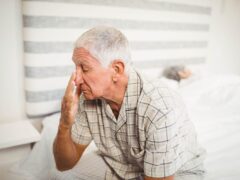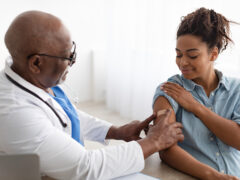Top Seniors Articles
Exercise for Seniors
Healthy Habits for Adults Over 60
Filter by Topic
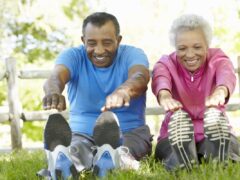
Exercise and Seniors
Exercise is an important part of nearly everyone’s everyday health, including older adults. Experts say seniors should be as active as possible. If you are an older adult, exercise can help you liv…

After 40: Women’s Nutrition and Metabolism Needs
They say 40 is the new 30, thanks to healthier habits. Yet, women (like men) continue to struggle with weight and other medical concerns as they enter their 40s. Both your nutritional needs (food a…
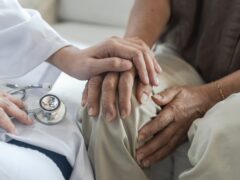
Are Aching Joints a Symptom of Rheumatoid Arthritis?
Linda (not her real name) is a 60-year-old woman who came to see me as a new patient. She said that her main health concern was “terrible arthritis” in her knees and ankles. It had slowly gotten wo…

Bladder Training for Urinary Incontinence
Urinary incontinence is the loss of bladder control. This means you can’t always control when you urinate. There are different types of urinary incontinence. Most can be treated. Bladder training i…

Brain Training: Cognitive Health Tips for Seniors
Forgetting small things is normal for people of all ages. As we age, this forgetfulness can become more common. According to the National Institutes of Health, nearly four out of 10 people notice m…
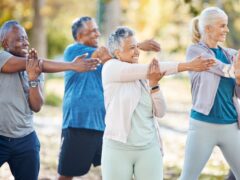
Healthy Habits for Adults Over 60
Do you feel as good now as you did at age 40? How about at age 50? You might be able to feel as good as you used to with new, healthy habits. You might even feel better. While it may seem like a lo…

Healthy Ways to Gain Weight If You’re Underweight
Weight loss is a serious issue in the United States. Consumers constantly see advertisements and news reports on trendy diets, flashy products, and magic pills promising to help them lose weight. G…

Hydration: Why It’s So Important
Your body depends on water to survive. Every cell, tissue, and organ in your body needs water to work properly. For example, your body uses water to maintain its temperature, remove waste, and lubr…

Why Exercise?
Why exercise? Exercise is powerful medicine. It is an important part of a healthy lifestyle. Exercise prevents health problems, builds strength, boosts energy, and can help you reduce stress. It ca…

Sore Muscles from Exercise
Exercise is an important part of a healthy, active lifestyle. It improves your heart and lungs and builds strong bones and muscles. However, exercise can cause sore muscles. This is common if you t…

Pneumococcal Vaccines for Seniors
What is a pneumococcal vaccine? A pneumococcal vaccine is an injected medicine that can protect against and often prevent pneumococcal disease. Pneumococcal disease is caused by a bacterial infecti…

Immunizations
Vaccinations are proven to be safe and effective, and they save lives. They are an important part of everyone’s health: babies and toddlers, school-age children, teens and pre-teens, pregnant women…

Which Vaccinations Do I Really Need?
I like to talk through the benefits and potential risks of vaccines with my patients. These conversations help them feel more confident about getting recommended vaccinations. And this isn’t just t…

Vaccines: Myth Versus Fact
There are many common misconceptions regarding vaccines. If you find yourself trying to decide if you’re for or against them, here is some evidence-based information offered to clear up any co…

Advance Directives and Do Not Resuscitate (DNR) Orders
What is an advance directive? An advance directive is a legal document. It tells your doctor and family what kind of medical care you want to have if you can’t tell them yourself. This could …

Antacids and Acid Reducers: OTC Relief for Heartburn and Acid Reflux
Over-the-counter (OTC) medicines are drugs you can buy without a doctor’s prescription. There are 3 types of OTC medicines that treat heartburn and acid reflux. Path to improved health To find out …

Anti-diarrheal Medicines: OTC Relief for Diarrhea
Diarrhea is when you have frequent, watery bowel movements – three or more loose stools in a day. Many things can cause it, including: This is a common condition that most of the time does not requ…

Antiemetic Medicines: OTC Relief for Nausea and Vomiting
Over-the-counter (OTC) medicines are medicines you can buy without a prescription from your doctor. Medicines that treat nausea and vomiting are called antiemetics. Several OTC medicines are used a…

Asthma | Medicines That Can Make It Worse
Certain medicines might make your asthma worse. Not all people who have asthma experience problems when taking these medicines. However, if you have asthma, it’s important to know about medicines t…

Chronic Pain Medicines
Chronic pain is a type of pain that continues over time. It can last anywhere from 3 months or more to several years. Chronic pain may be caused by certain health conditions. It is more common in p…

Cough Medicine: Understanding Your OTC Options
There are few things more annoying than trying to get through the day with a nagging cough — unless it’s trying to get through the night with one. For either situation, there are a number of over-t…

Deciding When to See a Doctor
Should I go to the doctor? Most of us have asked that question at one time or another. Whether it’s a bad cold, a funny-looking mole, or a nagging pain that just won’t go away, it can be hard to kn…

Decongestants: OTC Relief for Congestion
What are OTC decongestants? Decongestants are medicines that help relieve a congested (stuffy) nose. The congestion can be caused by a cold virus or by the flu, sinusitis, or allergies. Most decong…

Developing a Care Plan
Everybody has a health history. Maybe you have a chronic (long-lasting) medical condition. Perhaps you take some prescription medicines on a regular basis. Or maybe you just take over-the-counter m…
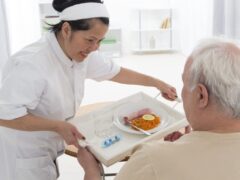
Drug-Food Interactions
A drug-food interaction occurs when your food and medicine interfere with one another. Interactions can happen with both prescription and over-the-counter medicines. These include antacids, vitamin…

How to Stop Steroid Medicines Safely
Steroids are a type of medicine with strong anti-inflammatory effects. They help to reduce redness, swelling, and soreness. They come in pill form, as inhalers or nasal sprays, and as creams and oi…

How to Survive an Extended Power Outage with Home Medical Equipment
Electricity is something we take for granted. When you depend on electricity to power medical equipment and medicine at home, then it comes as a shock when storms (tornados, hurricanes, ice storms,…
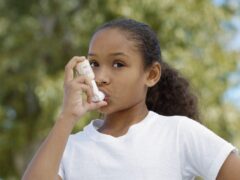
How to Use a Metered-Dose Inhaler
A metered-dose inhaler is a small, hand-held device filled with medicine to treat breathing problems. It helps deliver a certain amount of medicine through your mouth and into your lungs. It is com…

Laxatives: OTC Products for Constipation
Constipation is a common condition that makes it difficult to have a bowel movement. It can be caused by: Constipation can usually be treated with medicines called laxatives. Many laxatives are ava…
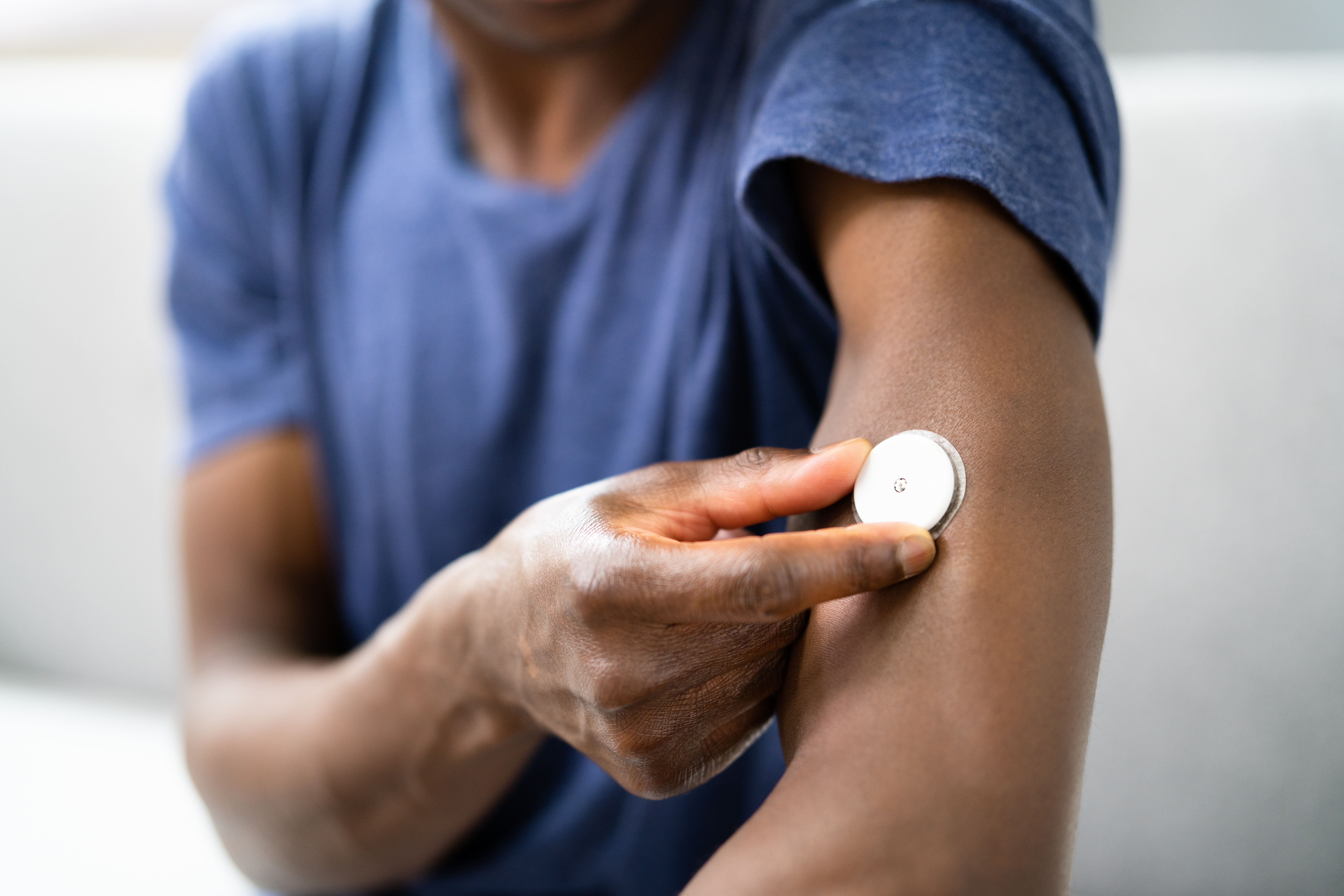
Living With Diabetes: How a CGM Can Help
Health care innovations allow patients living with chronic diseases such as diabetes or high blood pressure to monitor their condition. This helps them reach out to their family doctor in a timely …

Low-purine Diet
A low-purine diet is an eating plan that limits foods with high purine. Purines are a natural substance found in some foods. Purines aren’t all bad, but you want to avoid high amounts. When your bo…

Methotrexate Uses and Side Effects
What is methotrexate? Methotrexate is a powerful medication with a variety of uses, most commonly for treating cancer, arthritis, and psoriasis. Understanding methotrexate uses and side effects is …

Nasal Sprays: How to Use Them Correctly
Nasal sprays are liquid medicines you spray into your nose. They are used to help relieve congestion (stuffiness) in your nose. Congestion is often a symptom of a cold or allergies. Path to improve…
Take Care of Yourself
Taking care of yourself as you age means staying active, connected, and proactive about your health to enjoy greater independence and well-being.
Resources and Tools

Tools & Resources
BMI Calculator



